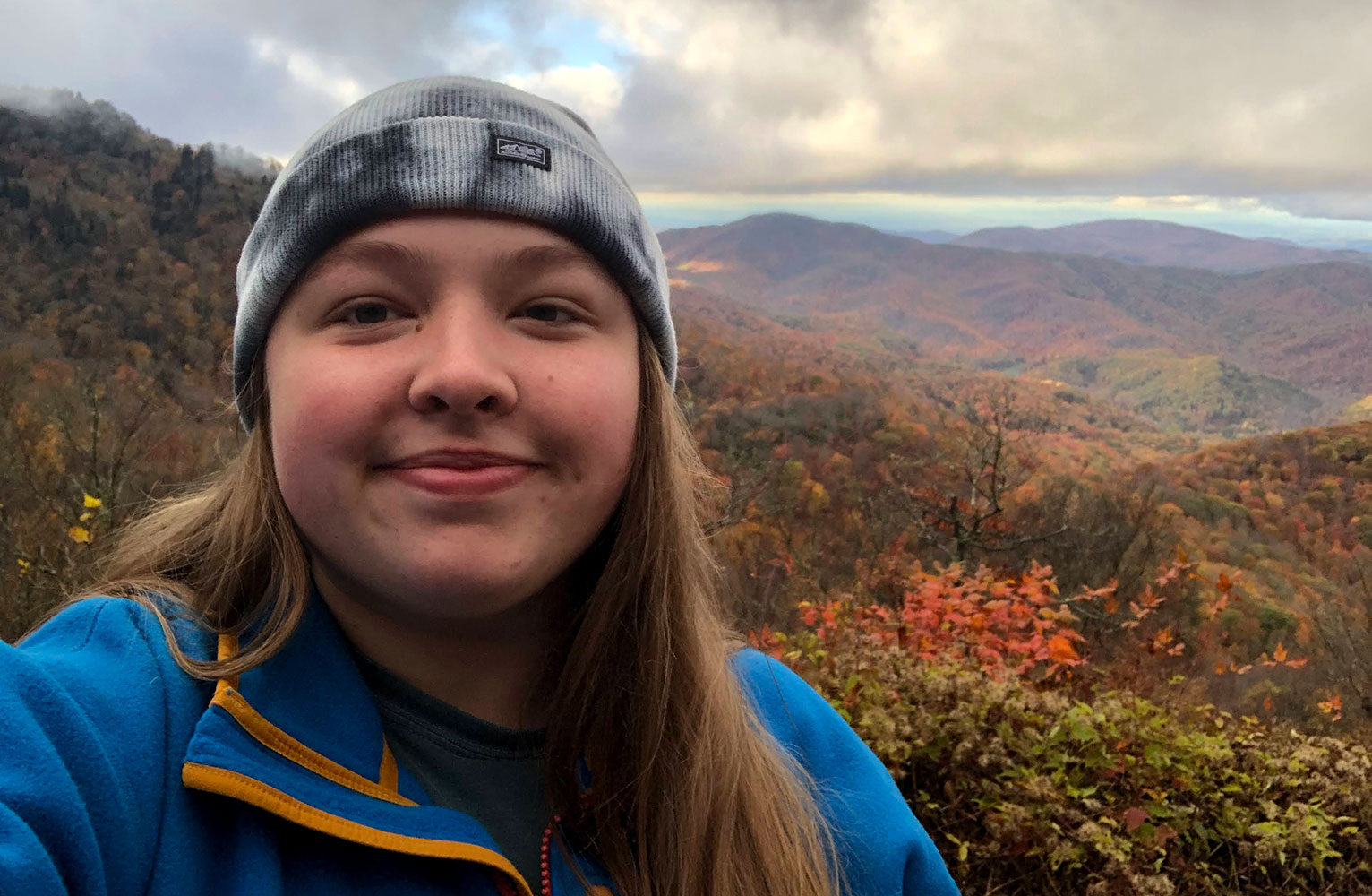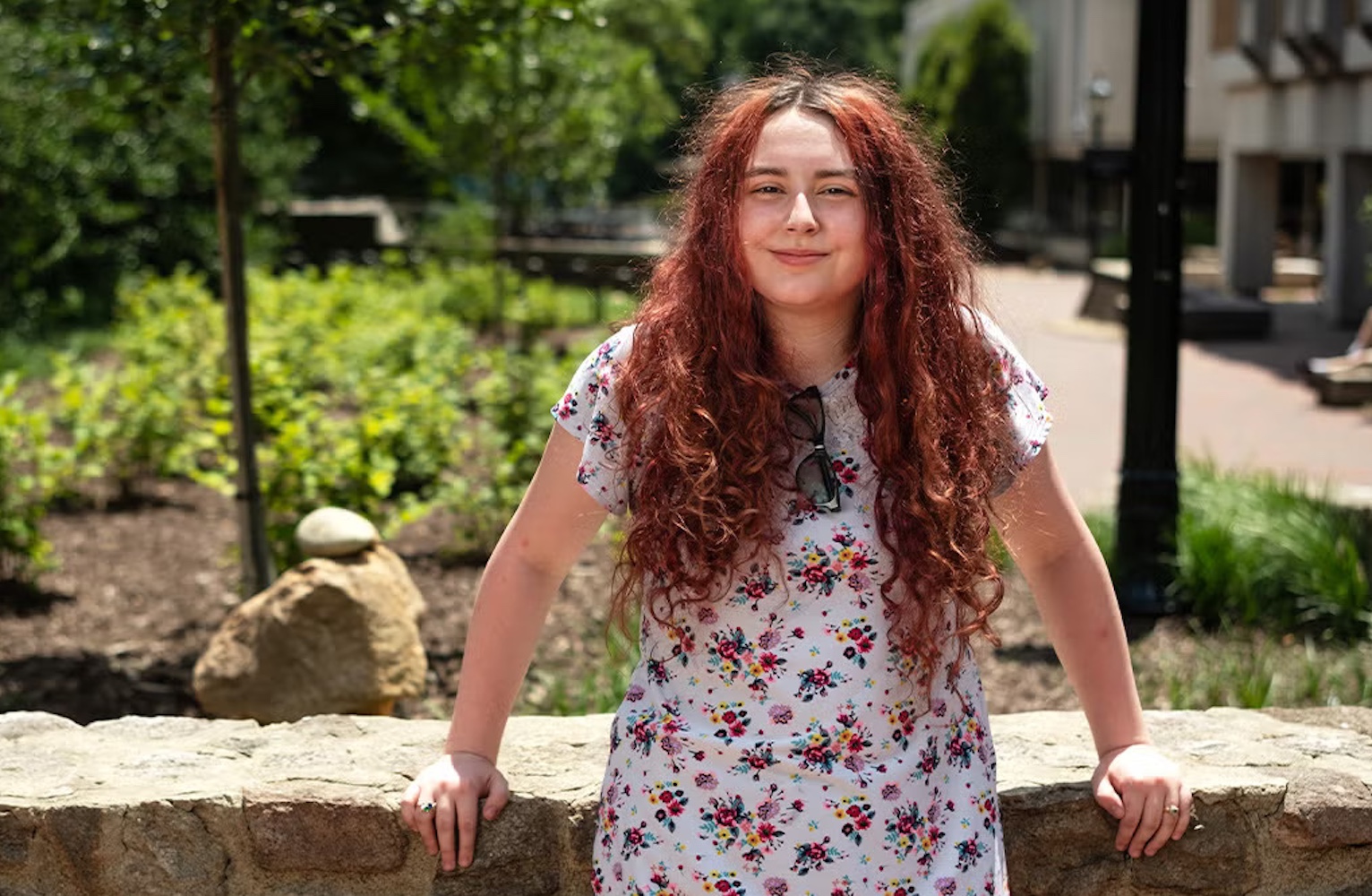
Chloe Hall ’24 has explored many new ecosystems thanks to her experience at the Highlands Field Site. (Photo submitted by subject)
When Chloe Hall ’24 received funding for her microplastics research, she got to return to the place she loves most: the Appalachian Mountains.
Her journey into studying microplastics began in the fall of 2021 during her semester at the Highlands Field Site, an immersive, experiential education program run by the UNC Institute for the Environment in partnership with the environment, ecology and energy program in the UNC College of Arts and Sciences. Nestled in Highlands, North Carolina, the site gave Hall a unique opportunity to investigate environmental issues firsthand while building research skills that would shape her academic path.
Tracing Microplastics in Appalachia
Microplastics — tiny plastic fragments that result from the breakdown of larger plastics — pose a significant threat to ecosystems. They can be toxic to microorganisms and organisms, contaminate groundwater, and even seep into drinking water systems.
During her summer research, Hall set out to determine whether microplastics were present in local rivers and whether their concentrations rose after storm events. By tracing these patterns, she aimed to identify pollution sources in the southern Appalachian Mountains, a region she describes as critical to understanding freshwater systems across the Southeast.
“Microplastics are everywhere, and they can even impact reproductive functions in freshwater organisms,” said Hall. “Doing research up in the mountains, where all of these watersheds start, can help to identify the source of pollutants. The southern Appalachian Mountains are very important for freshwater ecosystems because they kind of serve as the water towers of the Southeast. Anything that travels into the water there, travels hundreds of miles down and can create a domino effect.”
From Fieldwork to Graduate Research
The Highlands Field Site provided Hall with the experience of designing and carrying out meaningful fieldwork. That foundation propelled her forward. She built a professional network at Highlands, where she connected with Professor Diego Riveros-Ireguis and continued her undergraduate research at the Carbonshed Lab at UNC. Through this experience, she met Assistant Professor Amanda DelVecchia and joined the Freshwater Ecology and Biogeochemistry Lab, where she is now conducting her PhD research.
From the mountain headwaters to the southeastern wetlands, Hall has explored many new ecosystems thanks to her experience at the Highlands Field Site. “The field site experience prepared me to take on this kind of research at a higher level. It gave me the confidence to ask big questions about our environment and to keep pursuing solutions,” she said.
The Role of Donor Support
Funding is essential for sustaining research on pressing topics like microplastics and their impact on human and environmental health. Generous alumni, friends and foundations support the Institute for the Environment’s fieldsites, where students like Hall conduct environmental research and gain the experience they need to develop into the next generation of scientists.
Among those supporters are the Riggsbees. The Carolina alumni couple, Adam ’06 (PhD) and Shanna ’05 (M.Ed.), have deep ties to the Highlands community. Riggsbee spent summers at the Highlands Biological Field Station after completing his undergraduate studies, experiences that left a lasting mark on his academic and professional life.
“Those summers in the field helping grad students and faculty conduct field research dramatically broadened my academic and intellectual horizons,” Adam Riggsbee said. “Shanna and I support undergrads at Highlands to share some of that magic with the next generation. If they get half of what I did out of the experience, it’s money well spent, inspiring future scientists to study and help protect North Carolina’s wilds.”
Hall’s path illustrates how donor support, experiential learning and dedicated mentorship can come together to spark a passion for science and discovery. Her work in the Highlands built her understanding of a critical environmental threat while her current graduate studies demonstrate how early research opportunities can shape careers.
Read more about Hall’s research in the Highlands in this article by Sarah Padyk, Institute for the Environment.
Related Stories




